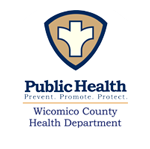NATIONAL PUBLIC HEALTH WEEK REPRODUCTIVE AND SEXUAL HEALTH
FOR IMMEDIATE RELEASE
CONTACT: Jennifer Johnson
(410) 219-3947 (Office) (410) 251-5379 (Cell)
NATIONAL PUBLIC HEALTH WEEK
REPRODUCTIVE AND SEXUAL HEALTH
(April 5th, 2024, Salisbury, MD) During the first full week of April each year, the American Public Health Association brings together communities from across the United States to observe National Public Health Week as a time to recognize the contributions of public health and highlight issues that are essential to improving our nation’s health. Each year, every day of the week is assigned a different theme. This year, the theme for Friday, April 5th, 2024, is Reproductive and Sexual Health. When individuals have access to quality reproductive and sexual health care and education, they can live happier and healthier lives.
More than 1 million sexually transmitted infections (STIs) are acquired every day worldwide, the majority of which are asymptomatic. A STI is a serious condition that can develop after you have sex. Common STI symptoms include itching and burning around your genital area. The good news is that most STI treatments can cure the infection, but not all types. You can get an STI again, even after treatment to cure it. Anyone who is sexually active can get a sexually transmitted infection. Some are contracted through skin-to-skin contact alone. According to County Health Rankings, Wicomico County’s sexually transmitted infection rate is higher than the state and country’s trends. A recent spike has actually been seen in the county’s HIV and syphilis cases.
A woman’s reproductive system is a delicate and complex system in the body. It is important to take steps to protect it from infections and injury and prevent future problems. Taking care of yourself and making healthy choices can help protect you and your loved ones. Protecting your reproductive system also means having control of your health, if and when you become pregnant. Women’s health and women’s reproductive health are high priorities for CDC’s Division of Reproductive Health. Their goal is to improve women’s health from menarche through menopause. CDC/DRH activities focus primarily on research about the following: Contraception (birth control), depression, heart defects and women’s reproductive health, hysterectomy, female genital mutilation/cutting, infertility, and menopause.
So, what can you do?
- Please help us raise awareness of reproductive & sexual health education needs for rural populations like Wicomico County. Advocate for equitable and fair reproductive and sexual health care access for all.
- Practice safe sex. Reduce your risk of spreading STIs like HPV and HIV by getting tested yearly; using barriers, such as condoms, for all forms of sexual intercourse; and practicing open communication with your sexual partners.
https://www.cdc.gov/std/prevention/screeningreccs.htm#:~:text=At%20least%20once%20a%20 year,every%203%20to%206%20months.
○ You can visit the Wicomico County Health Department to get tested locally. https://www.wicomicohealth.org/community-health-services/sexually-transmitted-infec tions/
- Please visit the CDC’s Reproductive Health Division to get informed about common reproductive health concerns for women such as contraception, depression, infertility, etc.
https://www.cdc.gov/reproductivehealth/index.html
# # #

